“If you are weary of the high taxes, roads filled with potholes, cracked or absent sidewalks, having a skeleton police force and subpar schools, I hope you will be inspired to run for City Council.”


“If you are weary of the high taxes, roads filled with potholes, cracked or absent sidewalks, having a skeleton police force and subpar schools, I hope you will be inspired to run for City Council.”
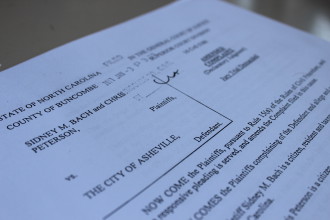
Retired attorney Sidney Bach and former Asheville vice mayor have filed a motion to amend the lawsuit they brought against the city of Asheville over its general obligation bond program in January. According to the new filing, the city’s plan to charge property owners taxes to cover principal and interest on the $74 million bonds approved by city voters in 2016 is illegal, since the city hasn’t yet issued the bonds.
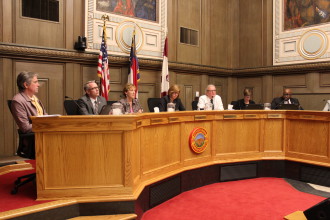
Through their elected leaders, Asheville voters will now have more say-so over development projects downtown and new hotels citywide.
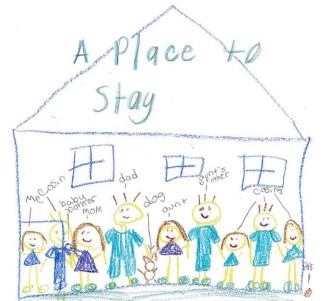
While 2016 statistics show increasing availability in the area’s rental housing market, Asheville renters say their choices remain limited and prices steep. Several city initiatives — including a $25 million affordable housing bond referendum approved by voters in November — aim to bolster the supply of affordable housing, while some private-sector players are pursuing similar goals.
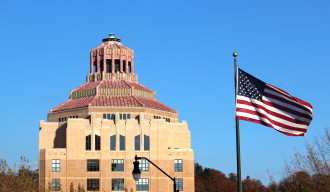
At City Council’s first budget work session since city voters approved a $74 million bond referendum, elected officials considered how to move forward on planning for the use of the funds. In one key decision, Council members agreed to assess three properties for potential city-led affordable housing development.

Asheville begins making plans for spending $74 million in bond funds. One item on the city’s to-do list: hire new staff to manage the volume of projects planned over the next seven years.

“A business that does not pay a living wage is simply ignoring part of the true costs of its operations and leaving the rest of us to pick up the tab — subsidized housing and transport, food banks and the like are all taxes, no more and no less.”

“Perhaps it could be delayed and neglected for what some might claim to be sound reasons, but ultimately assets, infrastructure and development have to keep pace with growth.”

“These bonds will provide funding to build new homes and apartments all around the city that families can afford, as well as the infrastructure to connect neighborhoods to schools, work, grocery stores and parks — all at minimum risk for city residents.”

City-sponsored early polling indicated that a solid majority of Asheville voters say they will vote for the proposed $74 million city bond referendum on this year’s general election ballots, and far more local groups and organizations have lined up to support the bond than to criticize it. As with any issue, however, opinion is mixed.

Has Asheville recovered from the trauma of its municipal debt crisis, which spanned the years between 1930 and 1976? The debt had a profound impact on Asheville’s development, its cityscape and, lastingly, its appetite for municipal debt. This year’s $74 million bond referendum will put the city’s confidence to the test when it asks voters to choose whether it’s time for the city to borrow again to finance growth.

“Our existing affordable housing policy or any variation on it is bound to fail and waste borrowed money.”
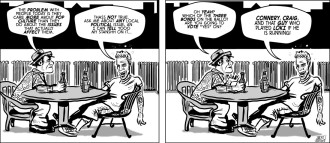

“The $74 million in bonds means that these projects would be completed within the next five to seven years, a timeline well ahead of how much time it would take individual projects without a new source of funding.”
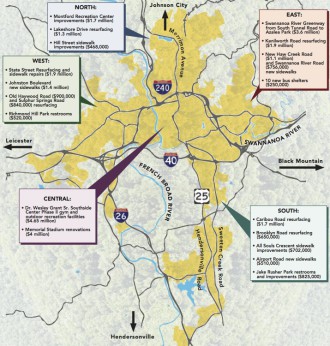
The die is cast: a $74 million bond referendum will appear on Asheville voters’ General Election ballots in November. What uses has the city proposed for the money and, if the referendum passes, how will that spending affect different parts of the city?

City Council is unified in its support for a $74 million bond referendum, which will be put to the voters on November’s general election ballot.
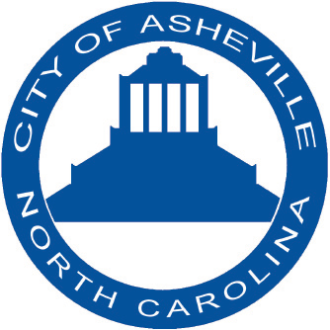
City Council will hear public input on a proposed $74 million bond referendum at its Aug. 9 meeting — but all Council can do in response to those comments is vote for or against including each of the three bond categories on the general election ballot in November. The deadline to adjust the total borrowing amount in each category was July 26.
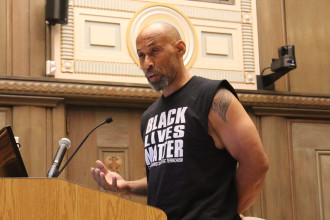
Armed with survey results that indicate community support for the proposed $74 million bond referendum, City Council set a public hearing on the issue for its next meeting on August 9. Council also responded to citizen concerns about community policing in the wake of the fatal shooting by police of Jai “Jerry” Williams on July 2, announcing the formation of a task force in cooperation with the Racial Justice Coalition.

City Council will meet Tuesday, July 26 to discuss the 2016 city bond referendum and hear reports on the city’s Homestay program and the Mayor’s Development Task Force. Public hearings on a land-use incentive grant for an affordable housing development project and a request for special consideration for signage at the Ingles Market at 863 Brevard Rd. are also on the agenda.

In a brief meeting on July 5, Asheville City Council passed resolutions that keep a proposed bond referendum on schedule for a possible appearance on the general election ballot in November.

City Council will consider a light agenda at 5 p.m. on July 5. The meeting is necessary to keep a potential city bond referendum on track for inclusion on the November 8 general election ballot.